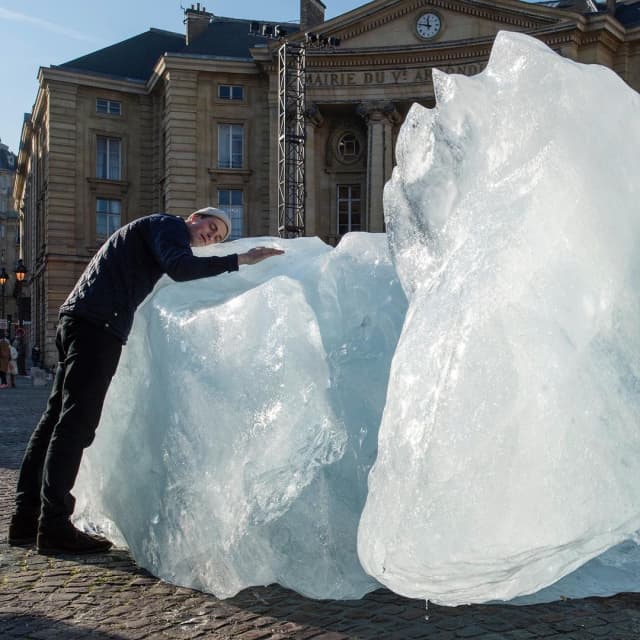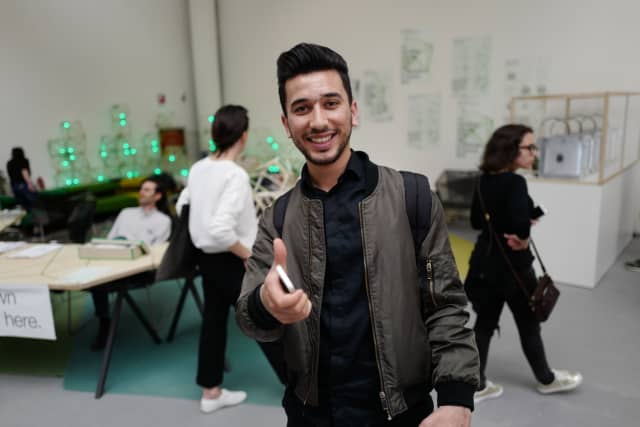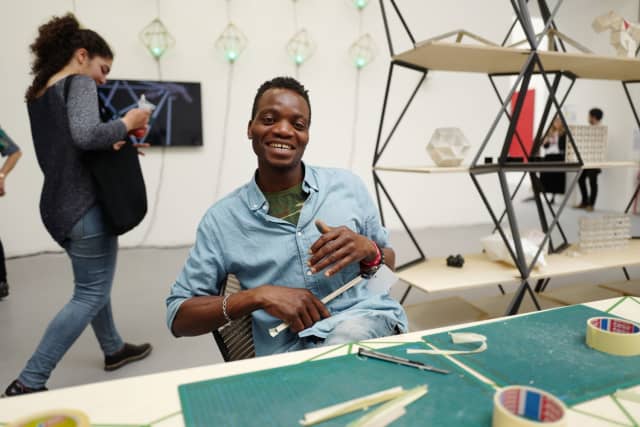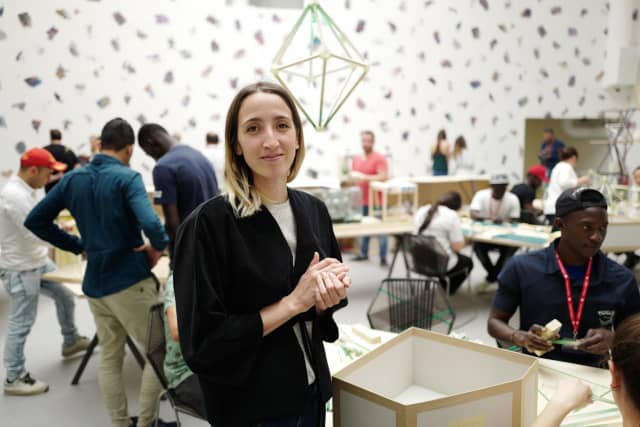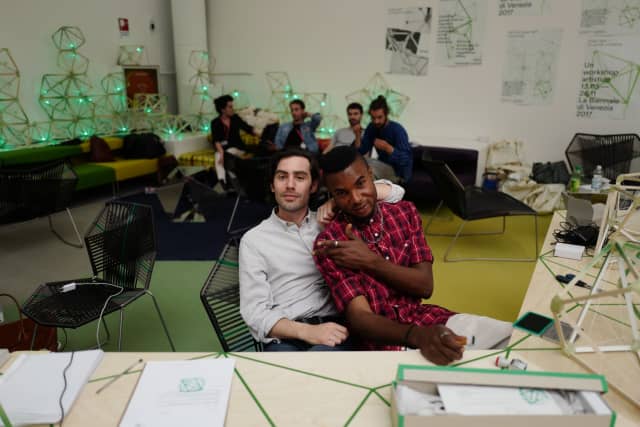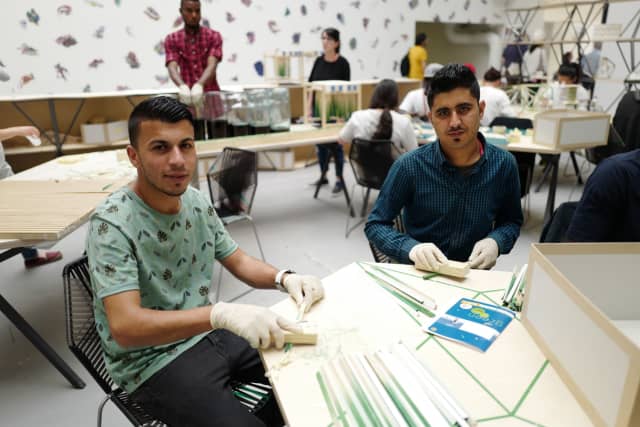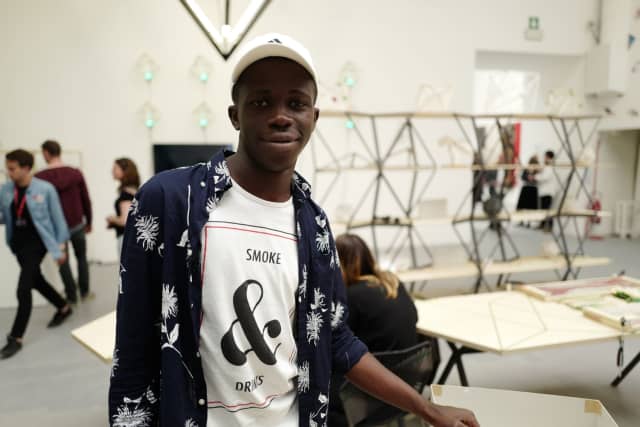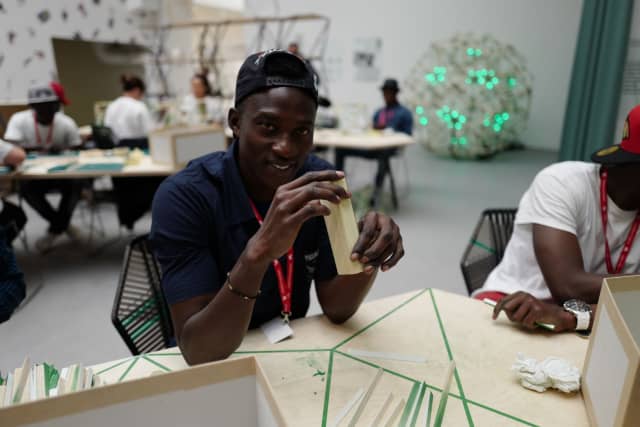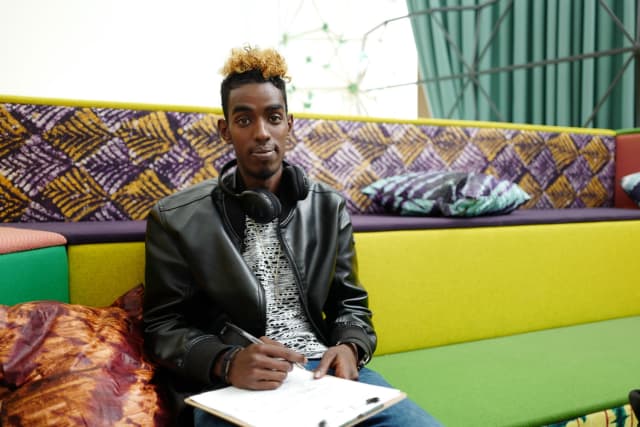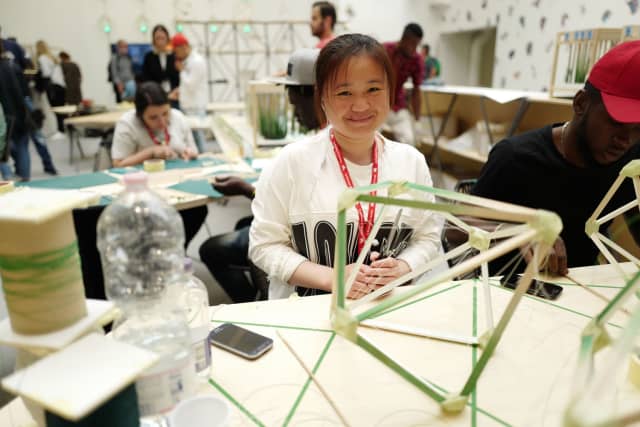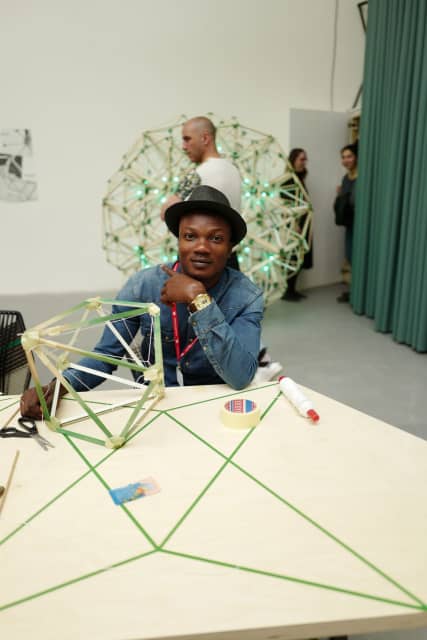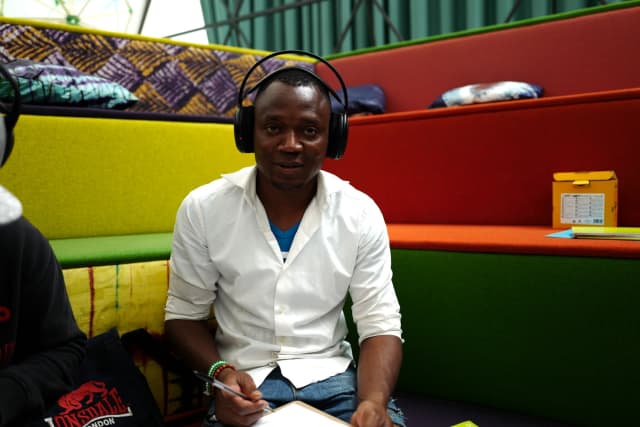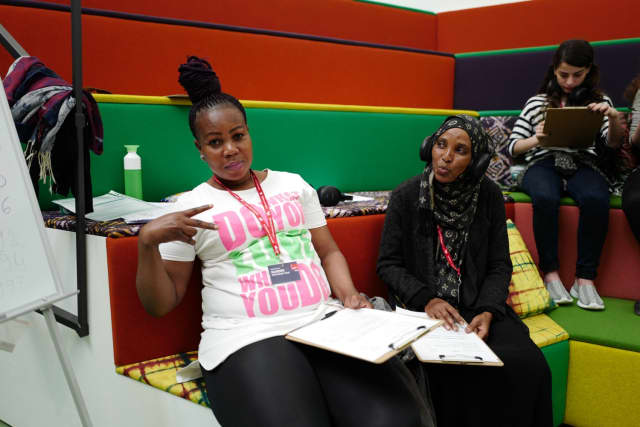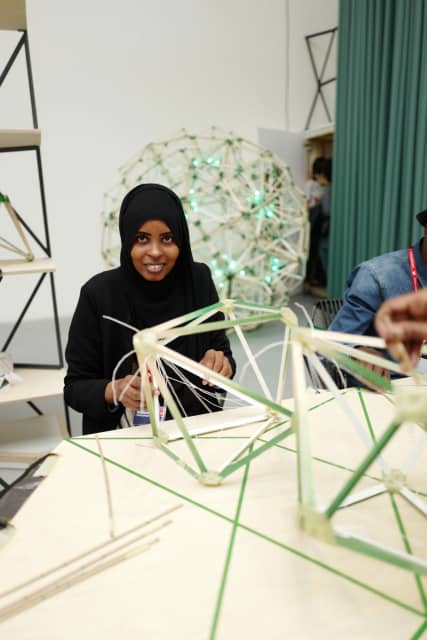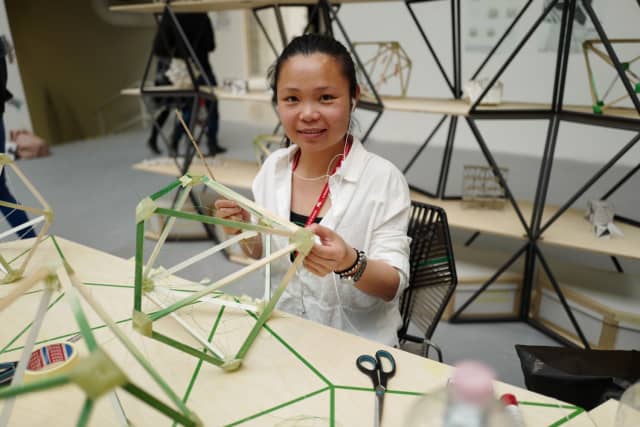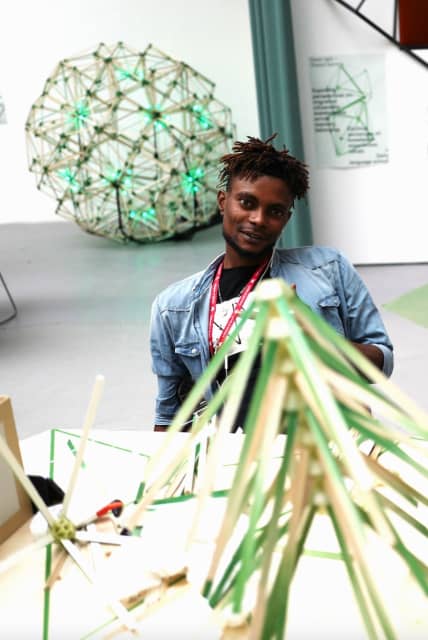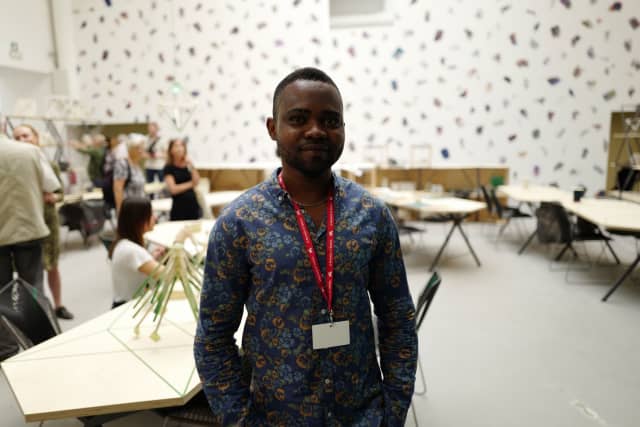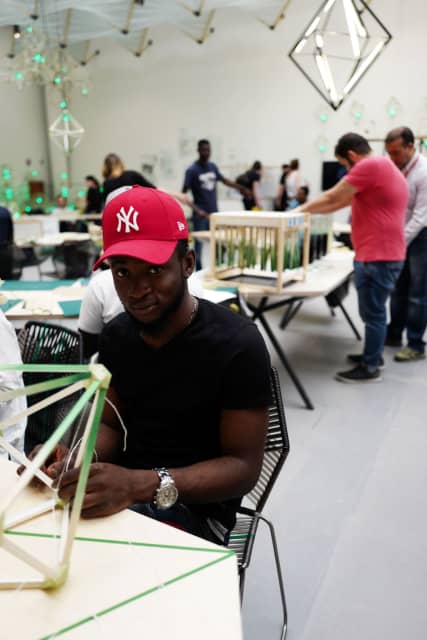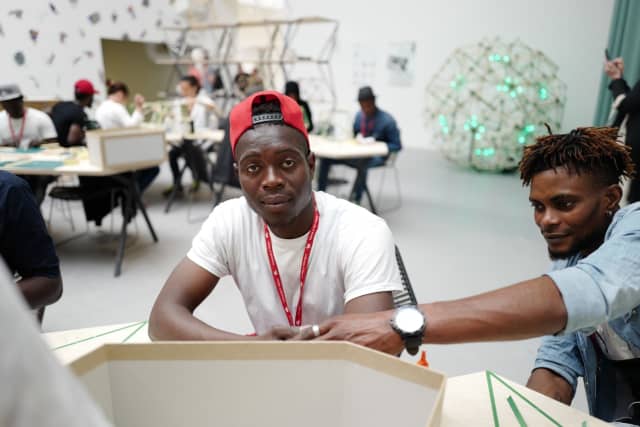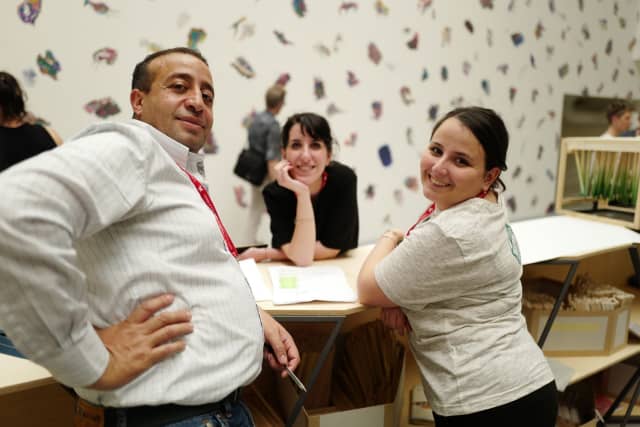Like the horizon, rainbows are perspectival and therefore exist in no particular location. A rainbow forms when the organic and the in-organic, eye and sunlight, matter and energy are brought into a sudden relation that changes the quality of light itself. The rainbow exist as an object, but an interstitial one, at a meeting place of relations and materiality. A rainbow is an alliance: solar gleam, errant cloud, water drops in motion, captivated eye, changed world” J.J. Cohen in Prismatic Ecology, 2013
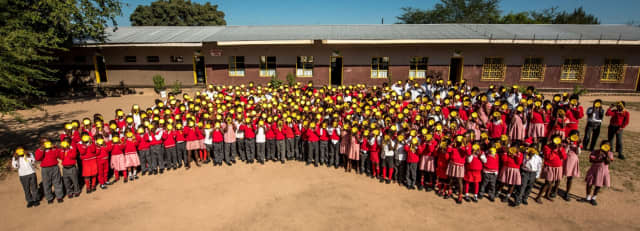
Little Sun teamed up with Santa Shoebox and raised solar lamps for students in rural South Africa.
Article via Designboom
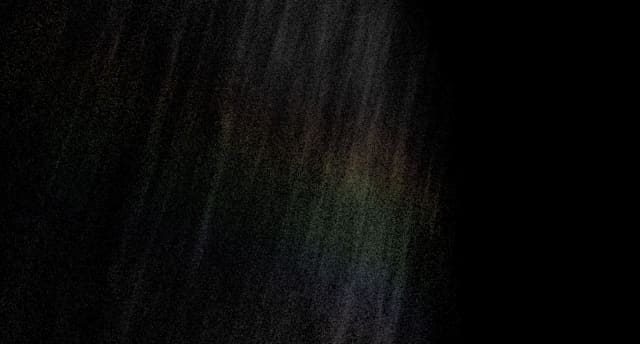
Today at Brilliant Minds in Stockholm, we are launching a new work in virtual reality, developed in collaboration with Acute Art, as part of the studio's continued interest in natural and ephemeral phenomena and how to explore these using the language of new media
"I’ve always been interested in how we co-produce reality. When I make an exhibition I think of it as a reality-producing machine. Virtual reality has the potential to become a platform for new ways of experiencing if we include the body in our virtual work – I don’t believe in leaving the body behind. For this reason, I’ve been particularly interested in developing Rainbow so that it hosts many people at the same time. To me, this social aspect is crucial; it emerges through recognising the presence of others, by experiencing others’ impact on a space. To enter Rainbow is not to exit the world and leave the body behind. It draws on our deep motor-sensory knowledge and sense of space to bring people together across geographical boundaries." - Olafur Eliasson
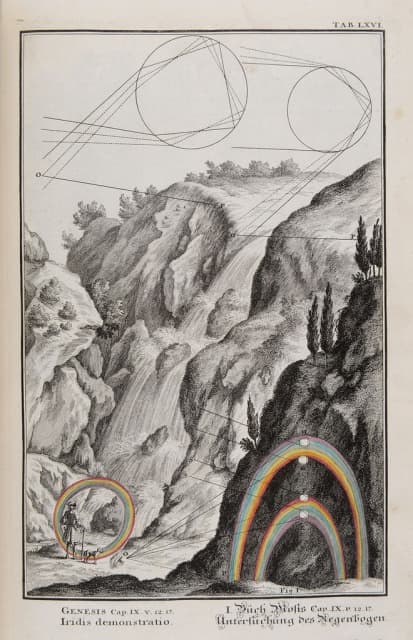
Johann Jakob Scheuchzer, Physica Sacra, 1731
Presenting Green light – An artistic workshop in the Exhibition Pavilion at this year’s Venice Biennale together with Thyssen-Bornemisza Art Contemporary has provoked many reactions. Some have been positive, others sceptical, and some clearly negative. There have been a lot of questions in the workshop space itself and beyond it, many of which are addressed and considered in depth in a series of essays in the Green light book recently published by TBA21 and Sternberg. Are people who came as refugees from very different countries being objectified when they take part in a transnational workshop at the heart of the biennale? Can the visitors participate actively, rather than remain outside, gazing at the participants from a distance? What is clear to me is that the reactions to Green light inevitably become a part of the project’s social fabric.
The project explicitly invites the general public to join the participating asylum seekers in the workshop, in building lamps and in taking part in the shared learning project – it trusts the point of contact, encourages interaction and collaborative work. Being in the Green light space and actively negotiating one’s role as a spectator or participant is a part of the project, whether one comes from a refugee background or not. I think, however, that not everyone saw that invitation, especially during the opening days of the exhibition.
Bringing Green light to the biennale means working within an exhibition platform that offers great visibility. It has been important to me throughout to actively use this visibility to bring the issues of migration and forced migration not just to those who are already interested in them (preaching to the choir, so to speak), but to everyone passing through the Exhibition Pavilion, since these are topics in the current political landscape that should not be ignored. It is also a means of giving the Green light participants a platform from which they can speak about their concerns.
Above and beyond what Green light communicates to the outside is the role it has in producing an engaged community. Integral to this is the Shared learning platform, an alternative educational programme organised by TBA21, which offers language classes, job training, psychological counselling and legal advice, as well as workshops, interventions, and seminars.
Green light – An artistic workshop presents no solution. It offers no easy ‘fix it all’ strategy. It is a modest attempt at addressing the issues surrounding forced migration and displacement through collaboration, community building, and individual engagement.
Participants discussing integration in the Green light workshop, Venice Biennale, 2017
www.soe.tv
Studio Tomas Saraceno: An Aerocene Explorer aerosolar sculpture floating at Museum Haus Konstruktiv, Zürich. courtesy Aerocene Foundation. @studiotomassaraceno @hauskonstruktiv
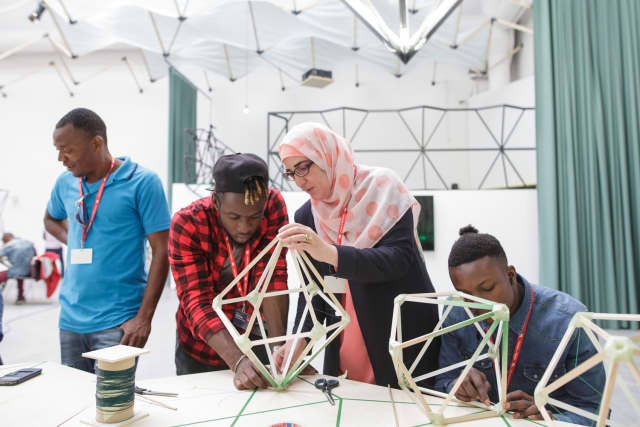
"My name is Tahajud and I participated in the Green light project in Vienna in 2016. I then went to Prague to present Green light there and have now come to Venice to teach the new Green light participants how to do the threading for the lamps. I know they were scared when they first arrived. I was scared too, because as a teacher I have the responsibility to teach them well. If I am a good teacher, I would teach them in the right way and they would learn it. If not, they won’t understand and will not be able to build the lamps. I couldn't understand the people from Somalia, China, Afghanistan and Kurdish Iraq, and they didn't understand me. I know how they feel, I feel for them and I want to help them. We communicated with movements and we could do something good together. Now after the tutorial days they are great and very fast!"
Tahajud Alghrabi is from Baghdad, where she used to work as a school principal.
You can read more personal stories on the blog: www.greenlightworkshop.org
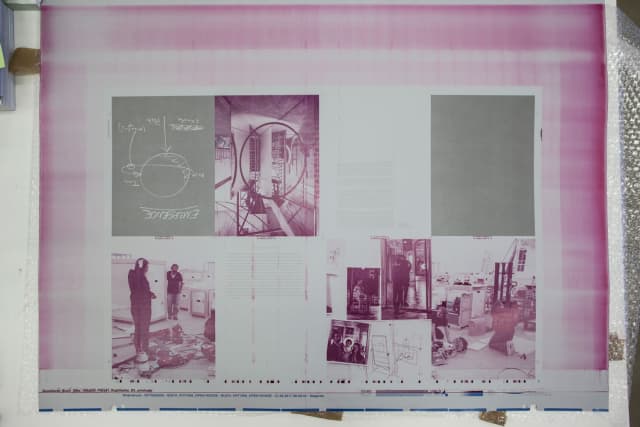
Our new book: Open House! A book about the artistic processes in the studio and its engagement with the wider world. The book is made in collaboration with independent curator Joanna Warsza, and includes conversations with studio members, texts by friends and insights into current research. Out in two weeks - pre-order now on Walther König
"We were making Green lights. And while we made Green lights we talked. I asked them to tell stories about the last cup of tea they had before leaving home. (…) The circle of stories began with halting incomprehension, and ended with a sudden flash of understanding. The borders, the border guards, the endless humiliation of the production of papers and narratives, the violence of waiting—all of these can be suspended in a moment of laughter, or in a random act of generous sharing.
And this is what we learned, again: freedom is like a little green light in a very dark room, that allows you to see yourself, that allows you to see other people and allows you to see the way to the door."
Shuddhabrata Sengupta, Raqs Media Collective, ‘The Light That Says Walk´, from Green light – An artistic workshop, Sternberg, 2017'
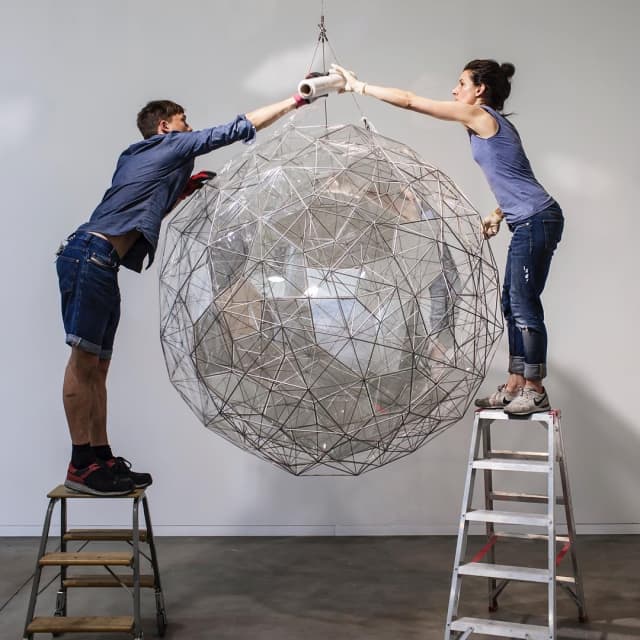
Hussein Hajhassan, Green light workshop at TBA21, Vienna, 2016.
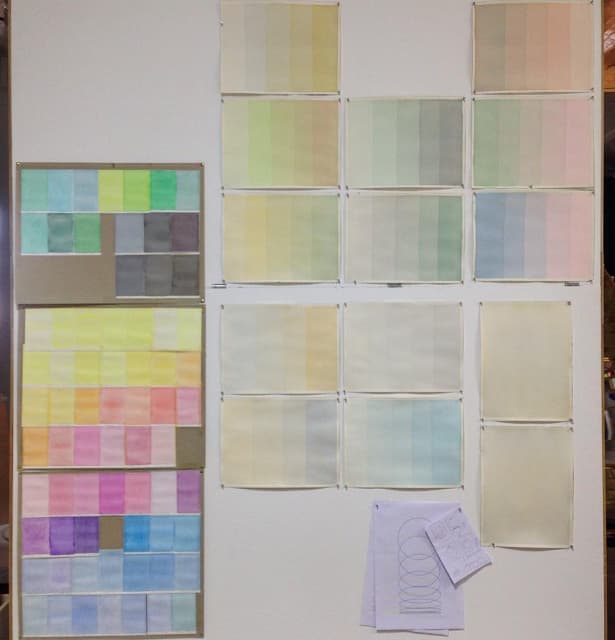
Come join the Green light workshop in Venice!
Just launched the new studio TV channel - www.soe.tv
Venetian moonlight
